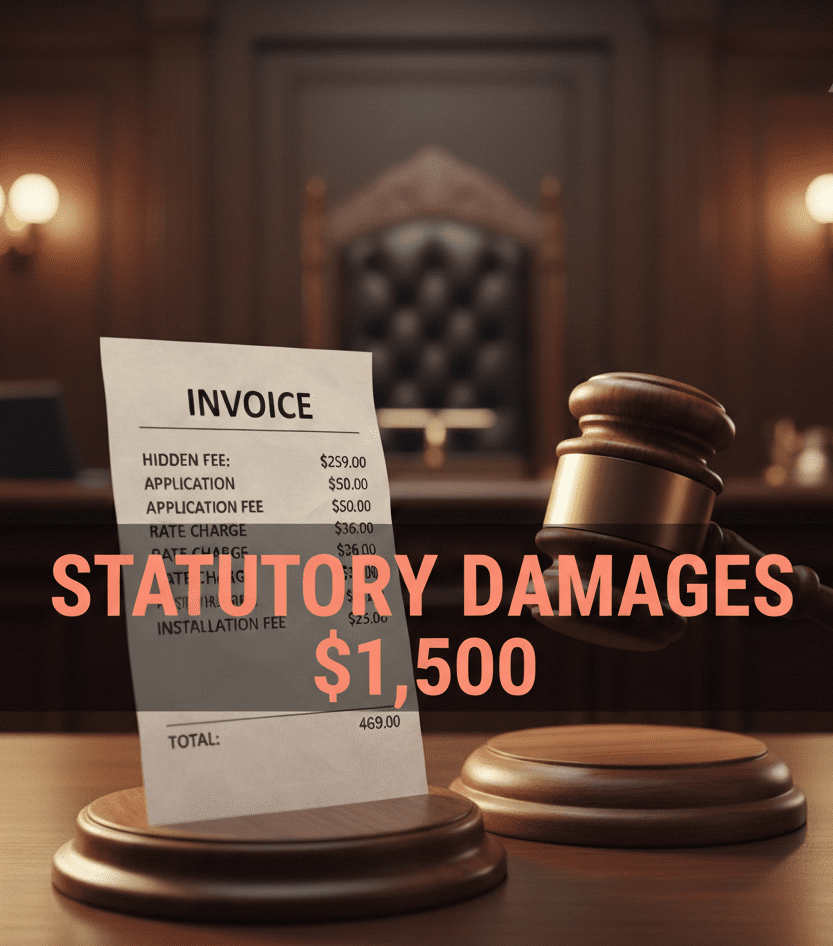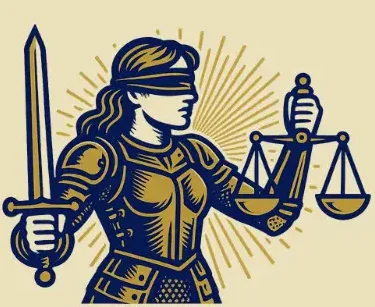Unfair and Deceptive Business Practices
Get help from a Washington DC Consumer Protection Lawyer.
I handle claims from a hidden fee to nationwide class actions. I partner with trusted firms across the country. Together, we hold dishonest businesses accountable. And I don’t back down until the lies are paid for.
When a company lies, you are not powerless
False “no-fee” promises. Fine-print traps. Bait-and-switch pricing. If a company tricks you out of your money, the law sees it as unfair or deceptive. You have ways to get your money back.
Washington, D.C.’s Consumer Protection Procedures Act (CPPA) is one of the toughest of those tools. Consumers can seek statutory penalties, triple damages, and attorney fees. This applies if you’re the only affected customer or one of many across the country.
We file CPPA claims in D.C. I handle individual UDAP suits in Maryland and Illinois. We also partner with other firms when it makes sense. In every case, the goal is the same: to make the company set things right and repay what it took.
What counts as unfair or deceptive?
- They advertised “no fees.” Then charged hidden fees anyway.
- They signed you up for services you didn’t agree to.
- They buried critical terms in fine print you couldn’t see.
- They changed the price or product after you paid.
If a company took your money by twisting the truth or hiding facts, the law might help you. This is especially true in D.C. and Illinois, where consumer protection laws are very strong.
You can do something about it
In D.C., Maryland, and Illinois, you don’t need to wait for a government agency to take action. You can sue directly for damages, for refunds, and often, for your legal fees, too.
We help clients take on:
- False advertising
- Bait-and-switch pricing
- Unauthorized charges
- Misleading loan or service terms
We help people use strong consumer protection laws. This way, they can hold businesses accountable when they lie, trick, or hide the truth.
The fine print doesn’t always win
Companies love to hide behind fine print and boilerplate disclaimers. But state laws look at what’s actually misleading, not what the paperwork says. If a company tricked you, you may still win.
If the company was unfair, hid important facts, or twisted the truth, we can help. If they charged you for something they didn’t provide, reach out to us.

Recent articles from The Dispatch
-
Customer Service So Bad, It’s Illegal
The Numbers Are In: Customer Service is Getting Worse A recent Wall Street Journal investigation confirms what we’ve all been experiencing: 77% of Americans reported having a product or service problem in the past year, the highest rate ever recorded….
-
Four Ways “Surveillance Pricing” Can Quietly Empty Your Wallet
Life is already too expensive. We have to deal with inflation, shrinkflation, and the threat of stagflation. Still, some companies go further. They watch you. Whether you’re sitting in a coffee shop on your laptop or lying in your bed…
-
The Mortgage Servicers Homeowners Complain About Most
Every year, mortgage companies make thousands of mistakes that cause people serious problems. I read hundreds of public complaints that homeowners submitted to the government. Six companies stood out for all the wrong reasons. In 2024 and 2025, homeowners filed…
